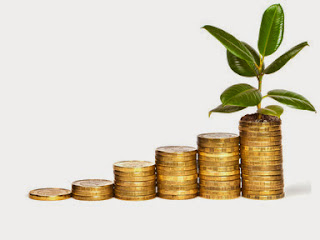A dark phase: Crisis in India's Covid management - Change and Continuity
Maharashtra has imposed curfew like situation restricting people's movement and gathering from Wednesday, 8 pm.
Dehradun, capital of Uttarakhand, showed 775 cases and Haridwar had 594 making it the biggest contributors of Corona positive numbers in the tiny northern hilly state.
Uttarakhand recorded its highest single-day spike on Tuesday, April 13 with 1,925 people testing positive.
The restrictions will make things difficult for the Indian economy as nearly 15 percent of the country’s gross domestic product comes from Maharashtra.
There was a significant drop in growth in fiscal 2020-21.
The Confederation of All India Traders has said middle-level and small traders in Maharashtra will lose about 1 trillion rupees ($13.34 billion) during the curfew period.
Prime Minister Narendra Modiand economic experts were waiting for recovery of the economy trying to brave from last year's shutdown. But the second wave of Covid19 will weaken the 'recovery pace'.
A dangerous second Covid-19 wave is sweeping across India's vast geography forcing authorities to impose curfews and lockdown in some pockets. India's richest state, Maharashtra, will follow a curfew like situation from Wednesday evening, 8 pm on April 14 till 7 am on May 1, Chief Minister Uddhav Thackeray announced.
# The new restrictions will force all "non-essential" shops, malls and e-commerce deliveries to pause operations.
# Restrictions imposed on the film industry in the state as shooting for movies, television shows and advertisements in Bollywood will also grind to a halt.
# Bars and restaurants, which were shut earlier this month, will not open.
# Public gatherings of more than five people banned.
# No one will be allowed to move in a public place without valid reasons.
All the establishments, public places, activities, services shall remain closed except essential services.
India reported 161,736 cases on Tuesday. In fact, since April 2-3, India has reported the highest daily tallies of infections. On the economy front, retail and recreational activity across India had dropped by 25 percent. Other sectors do not offer a better picture either. The sales of passenger vehicles in India dropped by over two per cent in FY 2020-21, according to auto industry body, Society of Indian Automobile Manufacturers.
In February, Moody's projected an optimistic scene and said Indian economy will grow 12 per cent in 2021, butnow the stage is set for contraction.
Nationwide vaccination was launched in India with great pomp and show in January this year - first starting with Covid warriors. Now, with hardly 7-8 percent of nearly 1.4 billion people in India estimated to have been vaccinated, it is anybody's guess that the Covid-19 crisis would assume ominous dimension.
On March 24, 2020, Prime Minister Narendra Modi had announced complete Lockdown whenthe coronavirus had just reported nine deaths and a total 519 cases. The University ofOxford had said that the 68-day lockdown in 2020 in India was "world's strictest" shutdown. It had rather left a devastating impact for migrant workers and the poor. Thousands alsolost jobs and went back 'to rural India' from large cities.
However, when it comes to taking precautionary measures in 2021 (during the second wave),there is large scale laxity by both the government authorities and the common people, the governed.
Thousands of Hindu devotees have gathered in the north Indian town of Haridwar to take a holy dip in the 'sacred Ganges river'.
The pilgrims including a large number of monks observed an auspicious bathing day on Monday, April 12 at Kumbh Mela in the town of Haridwar in BJP-ruled Uttarakhand province. "The sacredness of the bath would continue for the next few days," said one local priest.
In West Bengal, popular AMRI Hospitals could not vaccinate people for three consecutive days due to short supply.Another hospital could vaccinate only 12 people.On Monday, the state received four lakh doses of vaccines.
Amid crucial polls, Nirvachan Sadan gets new boss as Sushil Chandra takes charge
New Delhi: Sushil Chandra on Tuesday, April 13, assumed charge as the new Chief Election Commissioner. He is the 24th CEC. Chandra was appointed as the CEC on Monday, the day Sunil Arora demitted office.
Chandra will be in office till May 14, 2022. Chandra belongs to the 1980 batch of the Indian Revenue Service.
He was appointed as an election commissioner on February 14, 2019.
Chandra is known for giving attention and laying emphasis for promoting the concept of "inducement-free" elections.
In the coming months, elections are due in Uttar Pradesh and also in Goa, Uttarakhand, Punjab and Manipur.








No comments:
Post a Comment